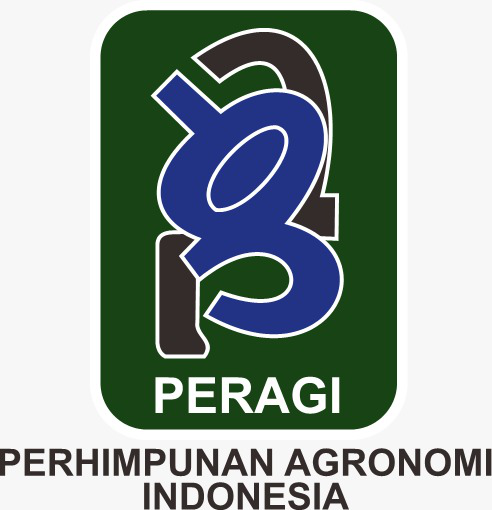Effectiveness of Solid Compost and SP-36 Fertilizer Application On Red Onion Plants (Allium ascalonium L) Growth and Yield
Abstract
Shallots (Allium ascalonicum L.) are considered a national priority and high-value vegetable commodity that has the potential for development through expansion of cultivation area, improved productivity, enhanced production stability, and increased quality. The objective of this study was to assess the efficacy of administering solid compost and SP-36 fertilizer on the development and yield of Shallots (Allium ascalonium L). The study was organized using a 2-factor Randomized Block Design (RAK), with the provision of solid 0, 200, 400, and 900 grams per plant, and SP-36 0,20,40 and 80 grams per plant as the factors under consideration. The variables measured included the height of the plants, the quantity of bulbs, the weight of the bulbs, and the diameter of the bulbs. The findings of this research demonstrate that supplying solid compost at the same height as the plants affects the growth of shallots at 8 weeks after planting, resulting in the highest average value. Additionally, the application of SP-36 fertilizer at plant height also has a significant impact on shallot growth at the same 8-week post-planting stage, with the highest average value. Furthermore, it was observed that climate change can have an impact on the yield of shallots. Moreover, there is an interrelationship between the provision of solid compost and SP-36 fertilizer concerning the number of bulbs, bulb weight, and bulb diameterDownloads
References
Albani, A., & Baharuddin, R. (2023). Pengaruh Pupuk Hayati dan Rock Fosfat Terhadap Pertumbuhan serta Produksi Tanaman Bawang Merah (Allium ascalonicum L.) pada Media Gambut. Prosiding Seminar Nasional …, 9–10. Retrieved from https://epros.perhorti.id/index.php/epros/article/view/67%0Ahttps://epros.perhorti.id/index.php/epros/article/download/67/65
Aini, Haryanto, P. P. (2023). Pengaruh Pupuk Fosfat Tehadap Pertumbuhan Dan Hasil Beberapa Varietas Bawang Merah (Allium cepa Aggregatum Group). Articles, Prosiding Seminar Nasional Hortikultura 2022, 1, 18–28.
Dan, P., Tanaman, P., Glycine, K., Di, L., & Ultisol, T. (2021). 1 1 , 2, 2. 10(1), 59–70.
Efendi, Z., Ramon, E., A. Wulandari, W., Sastro, Y., & Nurhaita, N. (2020). Pemanfaatan Limbah Kelapa Sawit (Solid) sebagai Substitusi Jagung dalam Ransum Ayam Merawang. Buletin Peternakan Tropis, 1(2), 48–53. doi: 10.31186/bpt.1.2.48-53
Maryani, A. T. (2018). Efek Pemberian Decanter Solid terhadap Pertumbuhan Bibit Kelapa Sawit (Elaeis guineensis Jacq) dengan Media Tanah Bekas Lahan Tambang Batu Bara di Pembibitan Utama. Caraka Tani: Journal of Sustainable Agriculture, 33(1), 50. doi: 10.20961/carakatani.v33i1.19310
Nasruddin, I., Bayfurqon, F. M., & Rahayu, Y. S. (2021). Efektivitas Pemberian Poc Kotoran Burung Walet Terhadap Pertumbuhan Dan Hasil Tanaman Bawang Merah (Allium ascalonicum L.). Ziraa’Ah Majalah Ilmiah Pertanian, 46(2), 198. doi: 10.31602/zmip.v46i2.4345
Nursanti, I., Nasamsir, N., & Supriyanto, R. (2021). Pengaruh Pemberian Pupuk Kompos Solid Terhadap Pertumbuhan Bibit Kakao (Theobroma cacao L) DI POLIBAG. Jurnal Media Pertanian, 6(2), 64. doi: 10.33087/jagro.v6i2.116
Zamaniah, luluun N., Handayani, T., & Saraswati, R. (2018). Pengaruh Hujan Ekstrem Terhadap Produktivitas Bawang Merah di Kabupaten Probolinggo Jawa Timur. Prosiding Seminar Nasional Pendidikan Geografi FKIP UMP, 173–183.
Copyright (c) 2024 Risna Duw Indri Yanti, Dini Hariyati Adam, Yudi Triyanto, Novilda Elizabeth Mustamu

This work is licensed under a Creative Commons Attribution 4.0 International License.
Authors who publish with Jurnal Agronomi Tanaman Tropika (JUATIKA) agree to the following terms:
Authors retain copyright and grant the Jurnal Agronomi Tanaman Tropika (JUATIKA) right of first publication with the work simultaneously licensed under a Creative Commons Attribution License (CC BY 4.0) that allows others to share (copy and redistribute the material in any medium or format) and adapt (remix, transform, and build upon the material for any purpose, even commercially) with an acknowledgment of the work's authorship and initial publication in Jurnal Agronomi Tanaman Tropika (JUATIKA).
Authors are able to enter into separate, additional contractual arrangements for the non-exclusive distribution of the journal's published version of the work (e.g., post it to an institutional repository or publish it in a book), with an acknowledgment of its initial publication in Jurnal Agronomi Tanaman Tropika (JUATIKA). Authors are permitted and encouraged to post their work online (e.g., in institutional repositories or on their website) prior to and during the submission process, as it can lead to productive exchanges, as well as earlier and greater citation of published work.







 More Information
More Information



